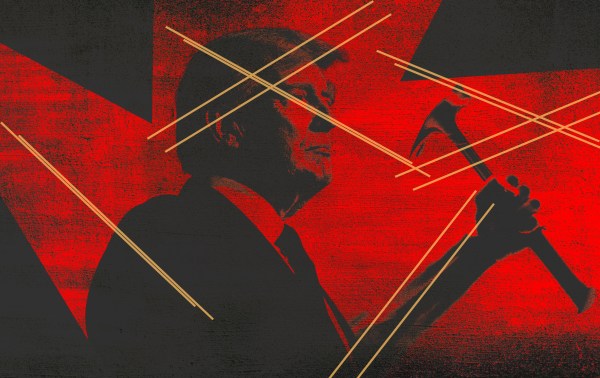The Supreme Court recently announced it will take up Dobbs v. Jackson Women’s Health Organization, a challenge to a Mississippi law that all but bans abortions after 15 weeks. It’s the first case in years that could result in the overturning of Roe v. Wade, the landmark 1973 ruling that, along with a companion case, Doe v. Bolton, legalized abortion on demand everywhere in the country.
A ruling probably won’t come until next summer, which is plenty of time for everyone to lose their minds.
The outright overturning of Roe is just one possibility, and not necessarily the most likely. My colleague David French, a prominent lawyer and court watcher, argues that the most likely outcome is a narrower ruling that upholds Dobbs without fully overturning Roe. This, French writes, would establish a “new standard that permits greater abortion regulation without explicitly permitting abortion bans.” It’s anyone’s guess what that standard would be, but one possibility is keeping abortion fully legal in the first trimester while permitting states to impose greater restrictions afterward.
For ardent abortion-rights activists, this would be a massive setback and would be denounced as a calamity. But since roughly 90 percent of abortions are performed in the first trimester, one could argue that it would go a long way toward making the right to most abortions more constitutionally and politically secure than ever before. If so, pro-life activists might be just as mad as their pro-choice opponents.
Of course, pro-lifers would be even angrier if the Supreme Court, now with six conservative justices, overturned Dobbs and upheld Roe entirely. But that seems unlikely given that the court took up the case in the first place.
I think Roe should be overturned because it was a fatally flawed constitutional ruling. Reasonable people can disagree on that—though finding reasonable disagreement when it comes to these issues is pretty rare.
But I think overturning Roe or simply upholding Dobbs and setting a tighter standard would be good for the country politically and culturally. Even the late Ruth Bader Ginsburg was troubled by the “breathtaking” sweep of Roe, which imposed an abortion-on-demand regime across the country and essentially created the pro-life movement. If the court had been more “measured” (RBG’s word), states would have been able to work out more reasonable and more politically secure regulations, avoiding the backlash Roe ignited.
Abortion is just one fault line, albeit a huge one, in the tectonic political and cultural stresses our country faces. But it’s also emblematic of them. Fights over the Supreme Court are so grotesque because the institutions that were designed to handle political fights aren’t doing their job. The courts weren’t intended to craft political compromises. They certainly weren’t intended to pick winners and losers in policy fights for the whole country, at least not the policy fights that are properly hammered out by legislatures and elections. Justices aren’t monarchs.
The same holds for the presidency, too. At least the president is elected. But for decades, presidents have increasingly legislated from the Oval Office through executive orders and administrative gimmicks. When a president from the other party comes in, he feels obligated to reverse the previous president’s diktats and then issue his own.
The rise of populism on the right and the left is a direct result of people feeling as if the decisions affecting their lives—or reflecting their values—are made by politicians, judges and bureaucrats.
Abortion advocates, and even some abortion opponents, make it sound as if overturning Roe is synonymous with banning abortions outright. That wouldn’t happen. Instead, the power to regulate abortion would fall back to the states, but also Congress to some extent. If that happened, abortion would remain legal in states where abortion rights are popular, such as California and New York.
Yes, it might be banned or severely curtailed in places such as Mississippi. I can understand why abortion rights advocates would find that dismaying, just as I can understand why opponents would find, say, California’s post-Roe system appalling.
But here’s the thing: Those people could make their case. They could campaign for politicians who agree with them, and those politicians could hammer out compromises with politicians who don’t. It could get ugly, but it would be healthier than what we have now.







Please note that we at The Dispatch hold ourselves, our work, and our commenters to a higher standard than other places on the internet. We welcome comments that foster genuine debate or discussion—including comments critical of us or our work—but responses that include ad hominem attacks on fellow Dispatch members or are intended to stoke fear and anger may be moderated.
With your membership, you only have the ability to comment on The Morning Dispatch articles. Consider upgrading to join the conversation everywhere.